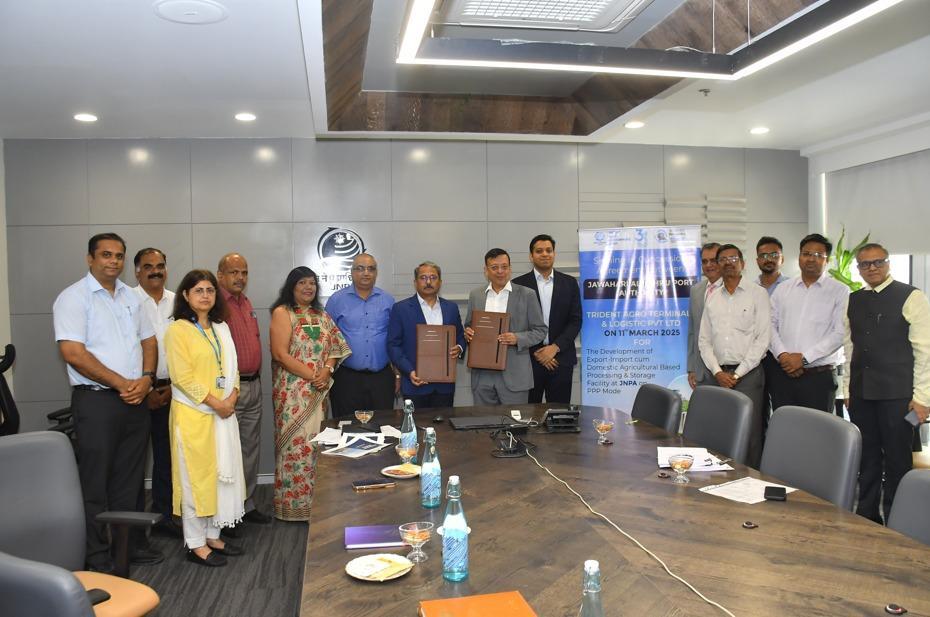
JNPA to set up India’s first agro-processing hub at port
India, being one of the largest agricultural producers in the world, has been focusing on increasing its agro-processing capabilities to enhance the value of its agricultural produce. The Jawaharlal Nehru Port Authority (JNPA) has recently taken a significant step in this direction by signing an agreement with a consortium of Trident Agrocom Exports & Man Infraconstruction for the development of an export-import cum domestic agricultural commodity-based processing and storage facility at the port. This project marks a major milestone in India’s efforts to establish a robust agro-processing ecosystem, and we take a closer look at the details of this ambitious initiative.
Valued at ₹285 crore, the project will be developed under the Public-Private Partnership (PPP) mode on the Design, Build, Finance, Operate, and Transfer (DBFOT) model. This model is designed to encourage private sector participation in infrastructure development, and in this case, it will enable the consortium to design, build, and operate the facility for a specified period before transferring it to the JNPA.
The facility will have a processing capacity of 2 lakh metric tons per annum, with an additional storage capacity of 1.5 lakh metric tons. It will be equipped with state-of-the-art machinery and technology to process a range of agricultural commodities, including fruits, vegetables, nuts, and cereals. The facility will also have a dedicated area for cold storage, allowing for the storage of perishable commodities at optimal temperatures.
The JNPA has issued the Letter of Award (LoA) to the consortium, marking the commencement of the project. The consortium has committed to completing the project by December 2025, with the facility expected to become operational by the end of 2026. The project is expected to create employment opportunities for hundreds of people and generate significant revenue for the local economy.
The establishment of this facility will not only benefit the local agricultural community but also the entire country. India’s agricultural sector is a significant contributor to the country’s GDP, and the lack of adequate processing facilities has often resulted in a significant decline in the value of agricultural produce. This project will help address this issue by providing a platform for farmers to process their produce and increase its value.
Moreover, the facility will also help India to increase its exports of processed agricultural products, which is a key area of focus for the government. The country has been working to improve its export competitiveness, and the establishment of this facility will provide a significant boost to India’s agro-processing exports.
The project is also expected to enhance the overall efficiency of the port by reducing the congestion caused by the movement of agricultural commodities. The facility will have its own rail siding and truck parking areas, which will reduce the need for trucks to enter the port’s congested areas. This will not only reduce traffic congestion but also minimize the risk of accidents and environmental pollution.
The JNPA has been at the forefront of India’s efforts to develop its ports and improve the country’s logistics infrastructure. The authority has been working to increase its cargo handling capacity and improve the overall efficiency of the port. The establishment of this agro-processing facility is a significant step in this direction, and it will help the JNPA to further enhance its position as one of India’s leading ports.
In conclusion, the establishment of India’s first agro-processing hub at the JNPA is a significant development that will have far-reaching benefits for the country’s agricultural sector. The facility will provide a platform for farmers to process their produce and increase its value, while also helping India to increase its exports of processed agricultural products. The project is a prime example of the government’s efforts to promote public-private partnerships and develop India’s logistics infrastructure. As the project moves forward, it will be exciting to see the impact it has on the country’s agricultural sector and the overall economy.






